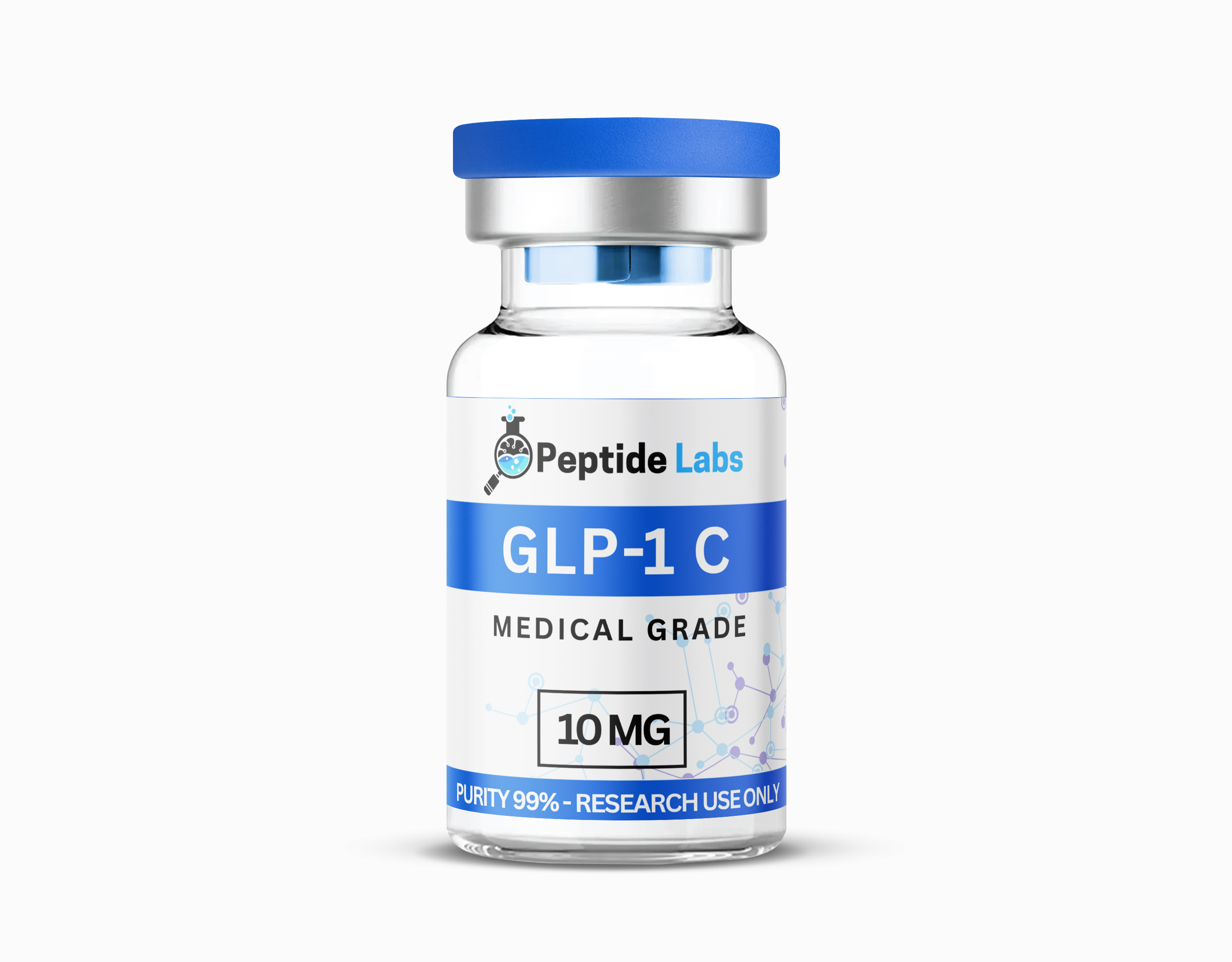
Cagrilintide
Weight Loss
$98.99$83.88
Cagrilintide
Cagrilintide is a long-acting amylin analogue peptide that mimics the natural hormone amylin, which is co-secreted with insulin to regulate appetite, food intake, and body weight.
By slowing gastric emptying, promoting satiety, and reducing caloric intake, Cagrilintide helps restore balance in the body’s energy regulation, making it one of the most effective emerging peptides for weight management and metabolic support.
When used alone or in combination with GLP-1 agonists such as Semaglutide or Tirzepatide, Cagrilintide has been shown to deliver enhanced and sustained fat loss, improved blood sugar control, and better appetite regulation.
Form & Stability
All Peptide Labs peptides are produced with 99%+ purity and lyophilized to preserve potency and stability.
Unmixed (Freeze-Dried): Stable for up to 1 year in the refrigerator (2–8 °C / 36–46 °F) and over 5 years in the freezer (−20 °C / −4 °F).
After Reconstitution: Store in the refrigerator (2–8 °C / 36–46 °F) and use within 30 days for optimal results.
Research Overview
1. Amylin Receptor Activation
Cagrilintide acts on amylin and calcitonin receptors, extending satiety signals in the brain and slowing gastric emptying.
This reduces food intake, prolongs fullness after meals, and enhances the body’s ability to maintain a caloric deficit for fat loss.
2. Weight Loss & Appetite Regulation
Clinical studies show that Cagrilintide leads to significant and dose-dependent weight reduction by suppressing appetite and promoting early satiety.
When combined with a GLP-1 receptor agonist such as Semaglutide, results have shown greater than 15% total body-weight loss and improved metabolic outcomes.
3. Metabolic Health & Insulin Sensitivity
By working synergistically with insulin, Cagrilintide improves glucose control and helps lower post-meal blood-sugar spikes.
Its effect on delaying gastric emptying supports more stable insulin levels and reduces overall glycemic variability.
4. Energy Regulation & Food Reward Control
Cagrilintide acts on the brain’s hypothalamic satiety centers, helping regulate hunger and reduce food cravings.
This leads to more consistent energy levels and improved adherence to dietary goals over time.
5. Combination Therapy Potential
When used alongside GLP-1/GIP agonists, Cagrilintide enhances the weight-loss effect through complementary mechanisms — amylin-based appetite suppression combined with incretin-driven metabolic enhancement.
6. Body Composition & Fat Distribution
Cagrilintide promotes visceral-fat reduction while preserving lean muscle mass, contributing to improved body composition, metabolic efficiency, and physical performance.
Molecular Structure
Sequence: Lys-Cys-Asn-Thr-Ala-Thr-Cys-Ala-Thr-Gln-Ser-Asn-Asn-Phe-Leu-Val-His-Ser-Ser-Asn-Leu-Ser-Tyr-Asn-Leu-Leu-Gly-Ala-Leu-Leu-Ser-Ala-Gly-Ser-Leu-Pro-Ser-Ser-Ser-Asn-Leu-Val-Gly-Ser-Thr-Asn-Val-Tyr-Gln-Ser-Gly-Thr-Tyr-Cys-Ala-Gln-Arg-Leu-Gly-Ser-Pro-Tyr-NH₂
Molecular Formula: C₃₀₄H₄₆₈N₈₂O₉₄S₃
Molecular Weight: 6785.96 g/mol
Form: Lyophilized (freeze-dried) powder for maximum stability
Storage & Stability Instructions
All Peptide Labs products are manufactured using a lyophilization (freeze-drying) process to ensure maximum stability and purity. This method allows peptides to remain 100% stable for up to 3–4 months during shipping and storage at room temperature.
Once reconstituted (mixed with bacteriostatic water), peptides must be stored in the refrigerator to maintain potency and freshness. After reconstitution, peptides remain stable for up to 30 days when properly refrigerated.
What is Lyophilization?
Lyophilization is a specialized dehydration technique where peptides are frozen and exposed to low pressure, causing water to sublimate directly from solid to vapor. This process leaves behind a stable, crystalline white powder that preserves the integrity of the peptide until it’s mixed with bacteriostatic water.
Short-Term Storage:
Store at room temperature if used within a few weeks.
Keep peptides cool, dry, and protected from light.
For short-term storage (days to weeks), refrigeration at under 4 °C (39 °F) is recommended.
Long-Term Storage:
For longer preservation (several months to years), store peptides in a freezer at −80 °C (−112 °F). This ensures maximum stability and prevents degradation over time. (DO NOT RECONSTITUTE)
